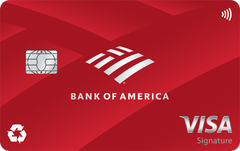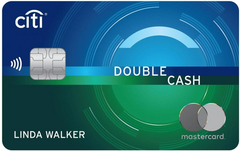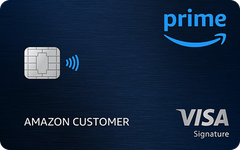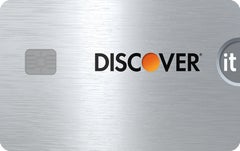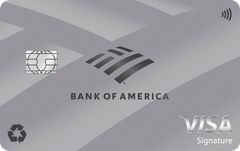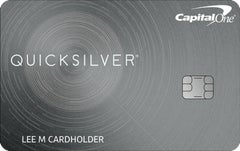If you’re looking for low-cost, easy-to-earn cash back rate no matter where you make your purchases, the TD Double Up card is one of the most rewarding flat-rate cards outside major issuers like Wells Fargo and Citi. Plus, it packs one of the best perk rosters available for no annual fee.
Rewards: Top-tier flat cash back rate
The TD Double Up card ranks among the best flat-rate cash back cards thanks to its unlimited 2 percent cash back on all eligible purchases. Few cards even earn 2 percent back on your general spending, and the TD Double Up is one of the only cards in that class that don’t require extra hoops to jump through.
There’s a solid variety of redemption options as well. The rewards are earned as “bonus points,” which are then redeemable at 1 cent per point toward cash back, gift cards, travel or merchandise. Since your points can’t increase in value toward travel, it’s probably wise to redeem for cash back considering its the most flexible option. You can receive cash back as a statement credit or direct deposit to a checking or savings account (as long as the financial institution is in the U.S.).
Not all major cash back cards allow you to redeem for a convenient direct deposit, so that’;s a convenient advantage in the TD Double Up card’s favor. On the flip side, you can only redeem for cash back once you’ve earned at least 2,500 points — equal to $25 cash back. This might not make or break your decision, but it’s worth noting that most competing cards allow you to redeem at any amount instead of making you wait until you’ve racked up at least $1,250 of rewards spending.
Rates and fees: No annual fee to offset
The TD Double Up card is a low-cost card with no annual fee or penalty APR to worry about. This is pretty common for many cash back cards, especially flat-rate rewards cards, and the 3 percent foreign transaction fee and up to $40 fee for late and returned payments are typical as well.
The low end of the 20.24 percent, 25.24 percent, or to 30.24 percent variable APR is on par with the current average credit card interest rate, but the higher end can be a bit higher than other cash back cards’ rates. However, the TD Double Up card’s 3 percent balance transfer fee ($5 minimum) can more than make up for this if you plan to transfer your balance after the first few months considering several cash back cards’ transfer fees increase to 5 percent by that point.
Perks: Great benefits for Visa Signature cardholders
The TD Double Up card’s starting perks are better than the basic features many competing cash back cards offer. The suite of benefits is respectable, carrying staples like account monitoring, emergency card replacement and 24/7 pay-per-use roadside assistance. It’s one of the few cards with cellphone protection, offering up to $500 per claim (up to two claims per year, minus a $50 deductible) if your phone is damaged or stolen and you your monthly cellphone bill with the card. There are a few partner perks as well, for Sofar Sounds presale entertainment tickets and expedited shipping via Shipt, but they’re hit-or-miss compared to the handy cellphone protection.
The TD Double Up is much more impressive if you qualify for the Visa Signature version of the card. This sweetens the deal with safeguards like purchase protection, extended warranty coverage and lost luggage reimbursement. Plus, Visa Signature status adds on extra travel features like Visa Concierge assistance and savings and privileges with Visa Signature Luxury Hotel properties and car rentals with Audi on demand, Avis and Budget.
These protections and travel perks put this card a rung above several other popular cash back cards since they typically come with barebones benefits. In fact, there are only other two major no-annual-fee cards with arguably better benefits: the Blue Cash Everyday® Card from American Express for its monthly streaming credits, and the Chase Freedom Unlimited®.







